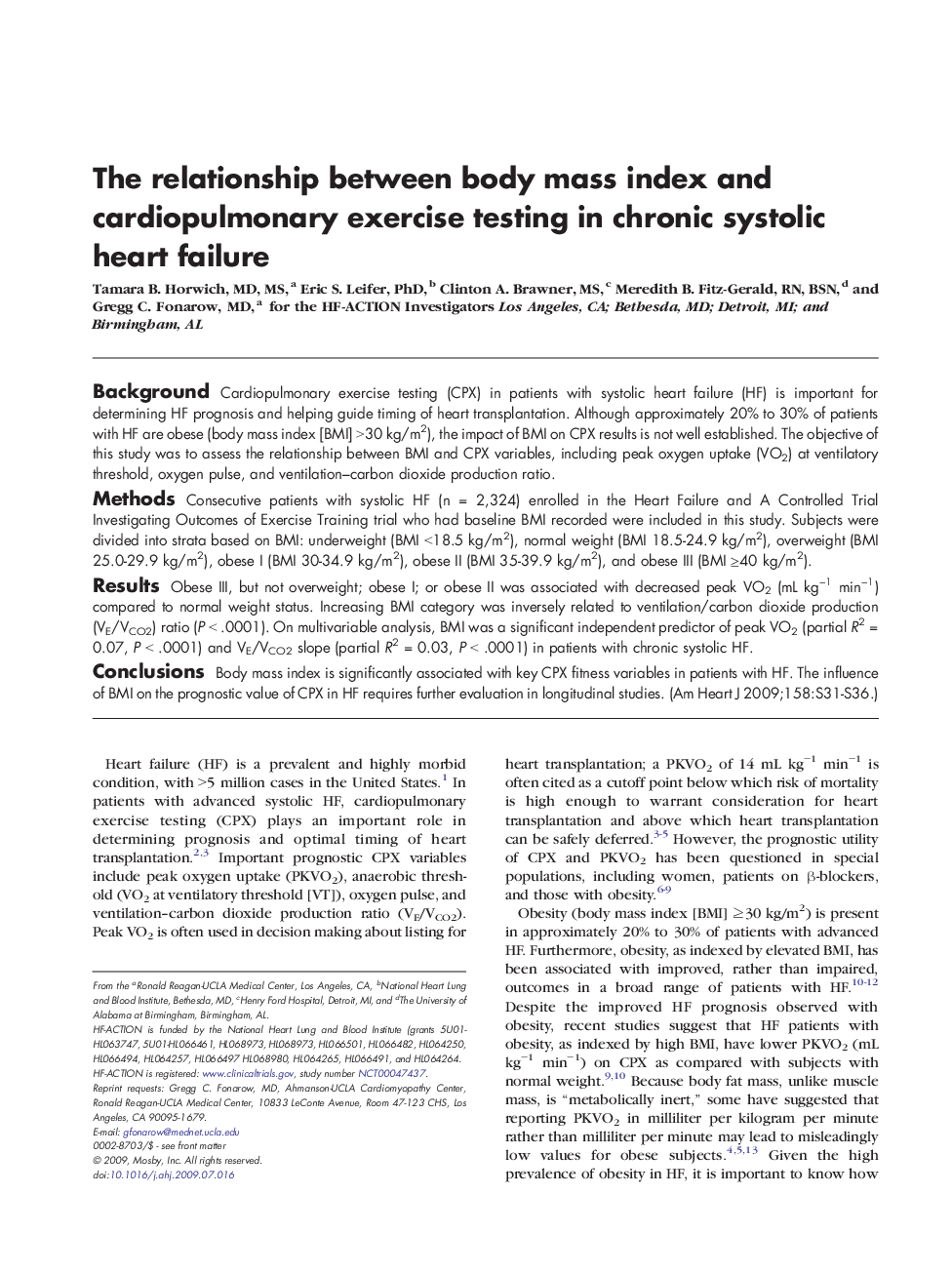| Article ID | Journal | Published Year | Pages | File Type |
|---|---|---|---|---|
| 2850562 | American Heart Journal | 2009 | 6 Pages |
BackgroundCardiopulmonary exercise testing (CPX) in patients with systolic heart failure (HF) is important for determining HF prognosis and helping guide timing of heart transplantation. Although approximately 20% to 30% of patients with HF are obese (body mass index [BMI] >30 kg/m2), the impact of BMI on CPX results is not well established. The objective of this study was to assess the relationship between BMI and CPX variables, including peak oxygen uptake (VO2) at ventilatory threshold, oxygen pulse, and ventilation–carbon dioxide production ratio.MethodsConsecutive patients with systolic HF (n = 2,324) enrolled in the Heart Failure and A Controlled Trial Investigating Outcomes of Exercise Training trial who had baseline BMI recorded were included in this study. Subjects were divided into strata based on BMI: underweight (BMI <18.5 kg/m2), normal weight (BMI 18.5-24.9 kg/m2), overweight (BMI 25.0-29.9 kg/m2), obese I (BMI 30-34.9 kg/m2), obese II (BMI 35-39.9 kg/m2), and obese III (BMI ≥40 kg/m2).ResultsObese III, but not overweight; obese I; or obese II was associated with decreased peak VO2 (mL kg−1 min−1) compared to normal weight status. Increasing BMI category was inversely related to ventilation/carbon dioxide production (VE/VCO2) ratio (P < .0001). On multivariable analysis, BMI was a significant independent predictor of peak VO2 (partial R2 = 0.07, P < .0001) and VE/VCO2 slope (partial R2 = 0.03, P < .0001) in patients with chronic systolic HF.ConclusionsBody mass index is significantly associated with key CPX fitness variables in patients with HF. The influence of BMI on the prognostic value of CPX in HF requires further evaluation in longitudinal studies.
